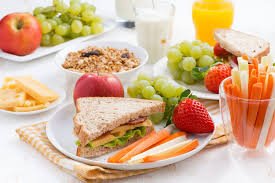Low Calorie Diets: Best Option to Lose Weight?

Low Calorie Diets: Best Option to Lose Weight?

Our body weight is the result of different variables; however, the amount of energy consumed in relation to the energy expend tends to play a big role. In order to lose weight, the input of calories needs to be reduced and the physical activity increased to assure there is a negative energy balance. If the body does not have the calories available to cover the energy used, then it will need to get it from fat storage, so that way, the body weight is expected to be lost. Even though the “energy in and energy out” theory may make sense, the tendency is to focus on the proportion of nutrients in the overall diet together with lifestyle changes, as opposed to only reducing total caloric intake1.
Additionally, it is not only about the calories, the quality of the diet plays a major role on weight management results. Prioritizing nutrients over calories will assure that even under a weight management program, all essential nutrients are covered. In general, a high protein, low carbohydrates and low fat diet provides encouraging results when it comes to weight management and satiety control2, 3. Following a low calorie diet without the appropriate amount of protein contributes to increasing the risk of losing muscle mass so to minimize this loss associated with energy restricted diets. It is recommended to have a daily high quality protein intake in combination with strength training to make sure muscle mass is built and maintained 4.
Once the weight loss is achieved, the challenge is always to maintain the desired weight in the long run. Having a holistic approach towards improving certain aspects of the persons’ habits rather than following just a crash diet for a short period of time will always be the main recommendation. There is a wide range of diets which are based on all sorts of strategies resulting in different outcomes; however, there is not one that will fit all.
While reducing calorie intake is an important step towards weight management, it is equally important to choose nutrient-dense foods and beverages to still meet the nutrient needs when a calorie-restricted diet is being followed. Nutrient-dense foods are those which have a high concentration of nutrients in a low caloric range as opposed to a food which provides a lot of calories but not sufficient nutrient such as sweets. A good example of nutrient dense food are the high protein shakes.
Restricting the daily calorie intake is a reasonable option but not all restricted calorie diets are made equal. The ones called very low calorie diets (VLCD), usually below 600 kcal per day, are not recommended as a preferred weight management resource for several reasons. When there is not enough energy available, the body will react by shutting down expenditure and the result will be that fewer calories are burnt. On the contrary, if we provide the body with sufficient calories to cover the daily activities, body weight will be managed more efficiently. With a VLCD is more difficult to achieve the amount of nutrients required to cover daily needs. By doing regular physical activity the amount of calories burnt will be increased and this will allow the dieter to have a diet which is low calorie but not as low as a VLCD. Additionally, VLCD have not been effective in the long term as people following this type of diets tend to lose weight quite quick but usually unable to maintain their new weight. These types of diets have also been linked with some health issues associated to not providing the body with sufficient calories4.
The energy restriction during a weight management program should be assigned in such way that it is personalised to the individual according to their habits, physical characteristics and the intensity and frequency of physical activity. These recommendations will need to be accompanied with changes in lifestyle behaviours and ideally with support from their social network. The general consensus for a more effective and safe weight management diet is, in the case of women to have no less than 1200 to 1500 kcal per day while for men, should be from 1500 to 1800 kcal a day5.
Diets have become energy rich, yet nutrient poor; populations are overfed, yet undernourished while taking excess of calories. Herbalife is committed to contribute to providing a balanced nutrition in a convenient way, allowing the user to have control of their portion sizes and the nutritional composition of their meals.
Herbalife F1 shakes are a meal replacement to be used as a weight management tool for this reason they are widely consumed to replace daily meals. If the objective is to lose weight, the recommendation is to have 2 shakes a days plus a balanced meal while to maintain weight, the strategy will be to have 1 shake a day plus 2 balanced meals.
The beneficial effect of F1 relies on being a nutrient dense meal meaning that it has a concentrated amount of nutrients (high protein) within a low caloric range. One shake serving provides around 200 kcal and18 g of protein when prepared with semi skimmed milk. It provides more than 20 vitamins and minerals which is crucial for keeping an adequate nutrient selection while following a low calorie diet. Each F1 serving will also deliver essential omega 6 fatty acid- linoleic acid. All this nutrient’s selection assure that Formula 1 Healthy Meal Nutritional Shake Mix replaces a meal in a way that provides most of the necessary nutrients expected to be present in a balanced meal but in the form of a shake.
Herbalife offers a selection of different F1 flavours to allow the weight management program to be varied and exciting. When following a calorie restricted diet it is advisable to have a healthy snack between meals. Herbalife protein bars provide around 140 kcal and 10 g of protein per bar. For a savoury snack treat, try Herbalife roasted soy nuts which contain 110 kcal and 9 g of protein per serving.
- Lott, MP. et al (2017). Impact of Lifestyle Strategies on Longer-Term Physical Activity and Weight. J Phys Act Health, 19(1), 22. doi: 10.1123/jpah.2016-0508.
- Bray et al (2017). Markers of dietary protein intake are associated with successful weight loss in the POUNDS Lost trial. Clinical Obesity, 7(3), 166-175.
- Flechtner-Mors, M. et al. (2010). Enhanced weight loss with protein-enriched meal replacements in subjects with the metabolic syndrome. Diabetes Metab Res Rev, 26(5), 393-405.
- .Tsai, AG. Wadden, TA. (2006). The evolution of very-low-calorie diets: an update and meta-analysis. Obesity, 14 (8), 1283-93
- Raynor et al. 2016. Position of the Academy of Nutrition and Dietetics: Interventions for the Treatment of Overweight and Obesity in Adults. Journal of the Academy of Nutrition and Dietetics, 116 (1), 129-147.
